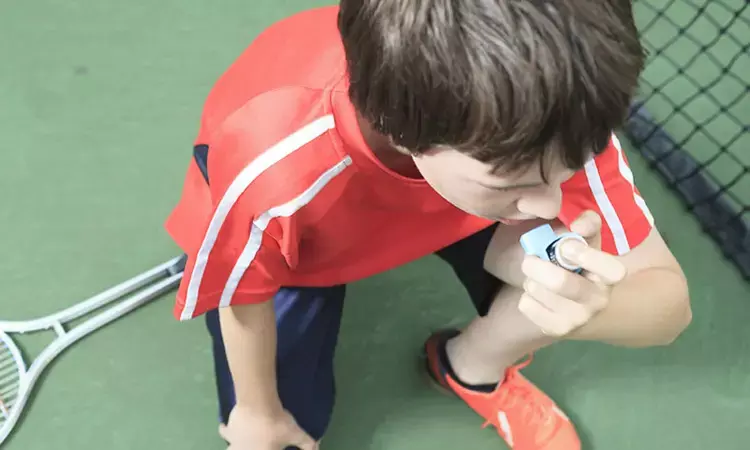- Home
- Medical news & Guidelines
- Anesthesiology
- Cardiology and CTVS
- Critical Care
- Dentistry
- Dermatology
- Diabetes and Endocrinology
- ENT
- Gastroenterology
- Medicine
- Nephrology
- Neurology
- Obstretics-Gynaecology
- Oncology
- Ophthalmology
- Orthopaedics
- Pediatrics-Neonatology
- Psychiatry
- Pulmonology
- Radiology
- Surgery
- Urology
- Laboratory Medicine
- Diet
- Nursing
- Paramedical
- Physiotherapy
- Health news
- Fact Check
- Bone Health Fact Check
- Brain Health Fact Check
- Cancer Related Fact Check
- Child Care Fact Check
- Dental and oral health fact check
- Diabetes and metabolic health fact check
- Diet and Nutrition Fact Check
- Eye and ENT Care Fact Check
- Fitness fact check
- Gut health fact check
- Heart health fact check
- Kidney health fact check
- Medical education fact check
- Men's health fact check
- Respiratory fact check
- Skin and hair care fact check
- Vaccine and Immunization fact check
- Women's health fact check
- AYUSH
- State News
- Andaman and Nicobar Islands
- Andhra Pradesh
- Arunachal Pradesh
- Assam
- Bihar
- Chandigarh
- Chattisgarh
- Dadra and Nagar Haveli
- Daman and Diu
- Delhi
- Goa
- Gujarat
- Haryana
- Himachal Pradesh
- Jammu & Kashmir
- Jharkhand
- Karnataka
- Kerala
- Ladakh
- Lakshadweep
- Madhya Pradesh
- Maharashtra
- Manipur
- Meghalaya
- Mizoram
- Nagaland
- Odisha
- Puducherry
- Punjab
- Rajasthan
- Sikkim
- Tamil Nadu
- Telangana
- Tripura
- Uttar Pradesh
- Uttrakhand
- West Bengal
- Medical Education
- Industry
Dupilumab reduces severe attacks in asthmatic children, finds study

Delhi: Dupilumab (Dupixent) significantly reduces severe asthma attacks in children with moderate-to-severe asthma, finds a recent study.
The researchers at Regeneron Pharmaceuticals and Sanofi conducted the LIBERTY ASTHMA VOYAGE study to evaluate the efficacy of dupilumab in children 6 to <12 years of age with uncontrolled persistent asthma. The study is a phase 3, randomized, double-blind, placebo-controlled trial.
The study enrolled a total of 408 patients with 259 patients having a baseline EOS ≥300 cells/µl. Furthermore, 350 patients had markers of type 2 inflammation (baseline EOS ≥150 cells/μl or FeNO ≥20 ppb). Additionally, there was no minimum biomarker required for enrollment.
Dupilumab was used in addition to standard-of-care maintenance therapy of medium-dose inhaled corticosteroid (ICS) with a second controller medication. Dupilumab was also assessed in patients who used high-dose ICS with or without a second controller medication.
Patients were randomized in the ratio 1:1 to receive subcutaneously either dupilumab or placebo every 2 weeks during the 52-week treatment period. Those in the dupilumab cohort who were ≤30 kg received 100 mg of the injection, and those who were >30 kg received 200 mg.
Key findings of the study include:
- Over the course of 1 year, the investigators noted a 65% average reduction in rate of severe asthma attacks in the population who had received 100 mg of the investigative drug.
- The population who had received 200 mg saw a 59% average reduction.
- 0.24 (100 mg) and 0.34 (200 mg) events per year occurred in the dupilumab cohort versus 0.67 and 0.75 in placebo, respectively.
- For the dupilumab cohort, significant improvement in lung function was seen as early as week 2 and was sustained for up to week 52.
- At week 12, improvement in lung function compared to baseline increased by 10.15 and 10.53 percentage points.
- For the placebo group, the improvement was only 4.83 and 5.32 percentage points.
- A total of 83% in the dupilumab cohort experienced adverse events—versus 80% with placebo.
- The most common events were injection site reactions (18% dupilumab, 13% placebo), viral upper respiratory tract infections (12% dupilumab, 10% placebo), and eosinophilia (6% dupilumab, 1% placebo).
The data further suggested that Dupixent, the fully-human monoclonal antibody, has the potential to be the best-in-class treatment option for this patient population.
"Dupixent is the only biologic shown in a controlled Phase 3 trial to improve lung function in children, which is generally consistent with results seen in the adolescent and adult trials. These positive data are especially encouraging for younger children who are struggling to manage their uncontrolled asthma." concluded the authors.
Dr Kamal Kant Kohli-MBBS, DTCD- a chest specialist with more than 30 years of practice and a flair for writing clinical articles, Dr Kamal Kant Kohli joined Medical Dialogues as a Chief Editor of Medical News. Besides writing articles, as an editor, he proofreads and verifies all the medical content published on Medical Dialogues including those coming from journals, studies,medical conferences,guidelines etc. Email: drkohli@medicaldialogues.in. Contact no. 011-43720751


